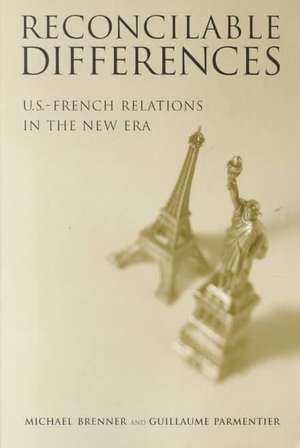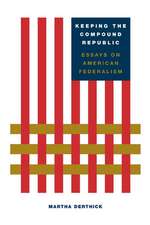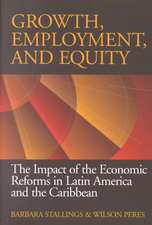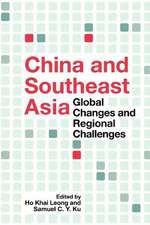Reconcilable Differences: U.S.-French Relations in the New Era
Autor Michael Brenner, Guillaume Parmentieren Limba Engleză Paperback – 29 mar 2002
The U.S.-French relationship is unique in mixing elements of rivalry and cooperation. Historical allies and comrades in arms, the United States and France are often fractious and quarrelsome. Their promotion of competing visions for a post-Cold War Europe gives a sharp edge to disputes over security and trade issues. Yet their mutual interests as partners in multiple collective enterprises compel them to find ways to put their relations on a surer footing. Doing so is also the key to meeting the larger challenge of reconciling America's dominance as the global superpower with the aspirations of a strengthening European Union. The authors of this study examine how national identity, political culture, and diplomatic style strain ties between Washington and Paris. They prescribe a set of policy and procedural remedies and lay out a strategy for sustaining more constructive collaboration.
Preț: 179.52 lei
Nou
Puncte Express: 269
Preț estimativ în valută:
34.35€ • 35.99$ • 28.47£
34.35€ • 35.99$ • 28.47£
Carte tipărită la comandă
Livrare economică 09-23 aprilie
Preluare comenzi: 021 569.72.76
Specificații
ISBN-13: 9780815712534
ISBN-10: 0815712537
Pagini: 208
Dimensiuni: 152 x 229 x 12 mm
Greutate: 0.23 kg
Editura: Brookings Institution Press
Colecția Brookings Institution Press
Locul publicării:United States
ISBN-10: 0815712537
Pagini: 208
Dimensiuni: 152 x 229 x 12 mm
Greutate: 0.23 kg
Editura: Brookings Institution Press
Colecția Brookings Institution Press
Locul publicării:United States
Notă biografică
By Michael Brenner and Guillaume Parmentier
Descriere
The U.S.-French relationship is unique in mixing elements of rivalry and cooperation. Historical allies and comrades in arms, the United States and France are often fractious and quarrelsome. Their promotion of competing visions for a post-Cold War Europe gives a sharp edge to disputes over security and trade issues. Yet their mutual interests as partners in multiple collective enterprises compel them to find ways to put their relations on a surer footing. Doing so is also the key to meeting the larger challenge of reconciling America's dominance as the global superpower with the aspirations of a strengthening European Union. The authors of this study examine how national identity, political culture, and diplomatic style strain ties between Washington and Paris. They prescribe a set of policy and procedural remedies and lay out a strategy for sustaining more constructive collaboration.












